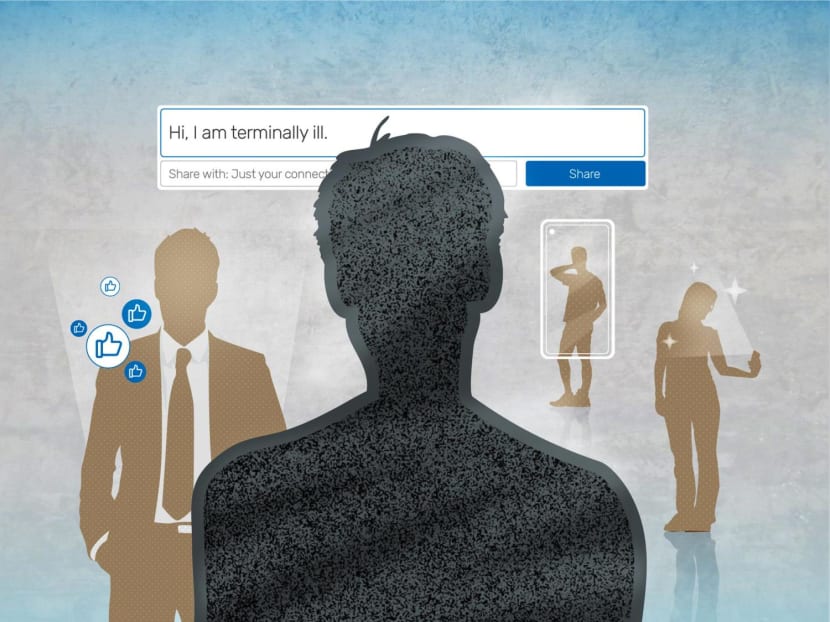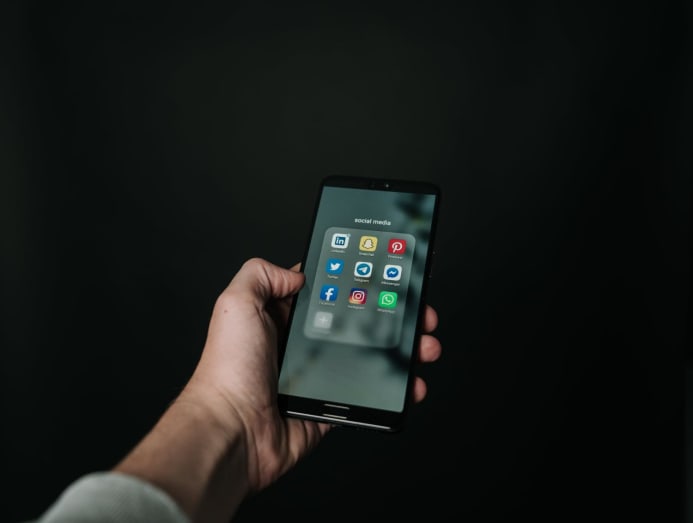Commentary: Someone announced on LinkedIn his impending death from terminal illness. Here’s what I realised about online personas

One morning last year, someone I had worked with before announced his retirement on LinkedIn. Except it was not your usual retirement note — he wasn't just retiring from work, he was retiring from life.
In his post, Tom (not his real name) announced a diagnosis of terminal illness, and doctors gave him 11 months to live. He thanked the LinkedIn community for professional support and growth, announced that he would only keep select, meaningful side projects and spend time with loved ones, and bade farewell.
The post attracted a flurry of comments, including many from people who professed not to have even known or met him.
Having met him only a handful of times in a professional setting, I did not quite know how to react. Even so, I found myself caught up in a tangle of feelings.
Sadness: That a talented man would have his life cut short, and that he and his family would be confronting a very difficult journey ahead.
Confusion: I hardly knew the man, and so saying anything to him would surely be insincere. By saying something, would I be doing something that comforted me, rather than him?
Wonder: How was he able to demonstrate, with such clarity, that this was what had to be done? Of course, as with anything operating behind a virtual veil, it was hard to tell anything about what a person is really thinking, feeling, or going through.
A VERSION OF OURSELVES
We have all had to grieve somehow, and oddly these days we seem to expect ourselves to grieve quite publicly, just as we live our regular lives quite publicly online.
Except online, we’re not really ourselves. We’re a version of ourselves.
Our curated online self is the self we think is acceptable, provocative, glamorous, easy-going, or whatever it is that we want others to perceive of us. We have to consistently maintain that self with every broadcast and comment.
We create mythologies around our friends, networks, the world; everything we say over the megaphone that is a LinkedIn, Facebook or Instagram post should be consistent with that mythology.

But what if this expression is too much for us to bear?
We are regular human beings, who have decided by collective hallucination that it is normal to curate public online profiles with, quite frankly, too much information about our lived experiences.
On platforms like LinkedIn, we don’t think twice about sharing professional experiences we might not so easily vocalise in real life.
Suddenly, you represent the voice of the broader community of your profession, the company that you work for, the country you are based in — you are simultaneously employee, public-relations department and diplomat.
Can the self possibly carry the weight of our online lives? Of unspoken accountability, constant curation, and resultant fatigue?
For many of us, it’s too much to ask.
But others have found that opening up about personal challenges online has helped them.
It provides a kind of therapy through journalling, unpacking their feelings to others, sometimes total strangers, when presented with an avenue to share their trials and experiences. For some, the virtual space removes real-life impairments, whether physical or psychological — unmasking a truer self hidden behind physical limitations and appearances.
The online exposure of selves — our hopes and fears, joys and griefs — has been differently embraced and expressed. Expecting everyone to be able to carry this unmasking well is unrealistic, but perhaps a new generation of digital natives could help us navigate this.

REAL OR FAKE
When Tom posted about his illness, so many reactions poured in. I want to believe that they were genuine expressions of well wishes, regret, sadness, love.
But I can’t help but wonder if, per LinkedIn protocol, many of the reactions that came in might be more performative than sincere.
Regardless of authenticity, I just hope that it had helped Tom achieve whatever it was that he wanted to achieve, even if it was just the closure of his professional online self, so that he could leave that aside for the next 11 months to focus on things that mattered more.
Tom’s note also said that he would be deleting his social media accounts in due course.
Part of this somehow feels wrong, as if the online selves, with their own distinct personas, ought to live on beyond the physical selves in cyberspace. Yet this was Tom’s final curation of his life on social media — the last thread he wove of his mythology.
A few months ago, someone posted an update on Tom’s LinkedIn profile with news of his passing.
His profile remains active.
ABOUT THE AUTHOR:
Liana Tang is a Singapore civil servant trained in biology and public administration. She has worn many hats in various public agencies, including the National Library Board, the Centre for Strategic Futures and the Ministry for Communications and Information. This piece first appeared in The Birthday Book: Unmasking, a collection of 58 essays on the new individual and collective possibilities for Singapore as we emerge from the throes of Covid-19.






